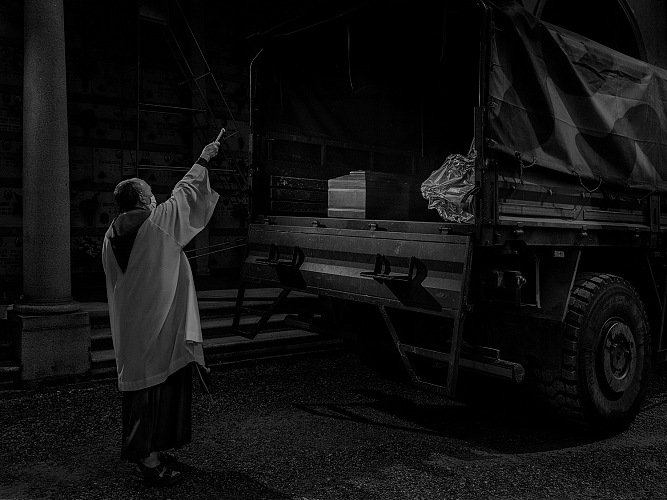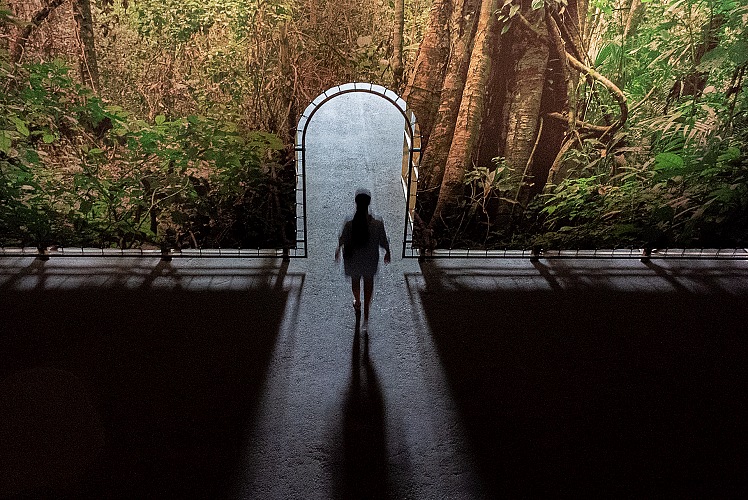Don't forget me
Sardinia is a complex land for those who were not born there and, perhaps, even for those who were. Various attempts of modern economy have been made to affect the widespread agro-pastoral vocation, if one excludes the areas of Sulcis Iglesiente dominated by the mining tradition, which has now effectively disappeared with all its cultural traditions. Typical examples are some places now celebrated as real white elephants, such as the chemical industry installations in the municipality of Ottana. But there are also areas that have undergone real changes and that, in the space of little more than half a century, have really transformed the local economy. Arborea, in the province of Oristano, and Sarroch, in the province of Cagliari, are among these, besides being the protagonists of the debate, which began on the island on the relations between benefits and disadvantages deriving from extraction activities. The discussion began in 2011, when the company that operates in the hub of petrochemical processing in Sarroch filed for the request to drill an exploratory well in the municipality of Arborea in search of a possible methane reservoir. This created two opposing poles. On the one hand Arborea, the flagship of the food industry of the island, where it opposed to the drilling project defending its roots in the agricultural tradition and the territory. On the other hand Sarroch, which for more than fifty years hosts the industrial area with the largest refinery in the Mediterranean, where it defends the industry for the jobs created, not without awareness, however, of the strong job losses in recent years and environmental damage and health that derive from activities of the refinery.Daniele Pasci's work, a native of Cagliari who moved to Emilia Romagna in the north of mainland Italy, goes to investigate precisely that sense of suspension between past, present and future, tradition and identity that is felt in those places accompanied by a strong feeling of loneliness and insecurity of a population that loses progressively hope and expectations.
There is certainly intuition for the work, but the feeling is that this is primarily a culturally self-referential work, because in order to be properly understood knowledge of the Island is required that few of us outside of Sardinia have. I think for example that the image number 9 of our gallery is not very significant for those unfamiliar with the tradition of the celebration of Saint Efisio, whose statue venerated in Cagliari, the city of which the saint is the patron is carried in pilgrimage from the capital up to Nora, passing through non other than Sarroch, which only thanks to the background in the photograph one recognises the petroleum refining plants. Now, beyond the obvious overlap between traditional culture and modern economy (offered by the compositional alignment of symbolic elements), the one that almost certainly escapes the continental viewer is a strong call to local tradition. The transportation of the statue of the saint is a secular tradition strongly felt in Cagliari, which is huge compared to the cultural values of the islanders, while the economy that is based on the refineries is still perceived as something that comes from outside and yes, brings benefits, but also massive damage. It is something that one hates, but which one cannot do without. In a crying out of feelings made even stronger by the presence of values that come from secular traditions.
Clearer, perhaps, always with a minimum of knowledge of the places, the emblematic image of the horseman in traditional dress (picture 4 in our gallery), who poses melancholic in the night upon his horse (another central element of Sardinian culture, especially in the inland areas and Oristano). In the background one can make out the refineries. Probably it embodies all the sense of loss of a population facing a present that tends to erase the past and that does not see any hope for the future. In this sense, we would have liked to see a more effective system of captioning to make available to everybody all the research carried out.
This without taking anything away from the validity of the research that deals with an issue that deserves attention, especially outside Sardinia. Finally there is to say that the set up of the exhibition is not conducive to reading. By visiting Daniele Pasci's website you can appreciate the scope of his work more effectively. [ S. I. ]
- - -
CIRCUITO OFF
DON'T FORGET ME
by
Daniele Pasci
Vecchio Ospedale | until September, 27th 2015
admission fee: 6,00 €
published on 2015-08-09 in NEWS / EXHIBITIONS
COTM COTM2015more in EXHIBITIONS
categories
EXHIBITIONS CONTEST WORKSHOP EVENTS MELTINGPOT BOOKS PORTFOLIO VIDEO ONGOING THEMATICPATHS YTOI OPINIONS FPART COVER READINGIMAGES SMARTFOLIO FPBLOG FPLAB
recent news
FPmag
editor in chief Sandro Iovine | sandro.iovine@fpmagazine.eu - senior writer Stefania Biamonti - web developer Salvatore Picciuto | info@myphotoportal.com - linguistic coordination Nicky Alexander - translations Nicky Alexander, Rachele Frosini - contributor Davide Bologna, Mimmo Cacciuni Angelone, Laura Marcolini, Stefano Panzeri, Pio Tarantini, Salvo Veneziano - local Lazio correspondent Dario Coletti local Sardinian correspondent Salvatore Ligios - local Sicilian correspondent Salvo Veneziano - editorial office via Spartaco, 36 20135 Milano MI | redazione@fpmagazine.eu - phone +39 02 49537170 - copyright © 2015 FPmag - FPmag is a pubblication of Machia Press Publishing srl a socio unico, via Cristoforo Gluck, 3 20135 Milano MI - VAT no. 07535000967 C.F. (TAX code) 07535000967 - Copyright © 2015 FPmag - Registered at Tribunale di Milano No. 281 on the 9th September 2014



























































